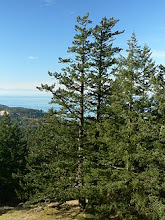Monday, June 1, 2009
Politics and the role of race.
I am not going to even attempt mincing any words. Race has played a part of USA politics since the day it became a nation. Politics has been used to exclude certain members of American society based on their race. Many decisions have been made on the basis of race. Plessy v Ferguson, many anti-miscegenation laws, many other acts of cruelty, the institution of slavery. Fast forward to the 1960's. Race is at the forefront of American politics. With leaders such as Dr. King and Malcolm X coming into the equation, many issues, such as discrimination had to be addressed. No one could ignore it anymore. You couldn't ignore the black population or try to exclude them anymore because they were standing up and saying "I will not take anymore crap anymore". Dr. King wrote about how blacks cannot wait anymore for their rights to come, they needed to stand up and fight for it. That is the reason blacks in this nation can vote and why they have political rights. They have them because they stood up for themselves and fought back. That was the 1960's. Today, there are still other issues, such as poverty, poor medical care, poor educational standards, and other issues. Few people want to talk about these issues. These issues do affect people of all races and ethnicities. The issue that makes it particularly bad for African-Americans is that they suffer from it more than anyone else and have suffered more than anyone else. Black Americans are more likely to be born into neighborhoods with higher poverty rates, higher crime rates, higher drop-out rates, higher rates of unemployment. The question is "what role does politics have in this"? Here is the answer. Historically, blacks have been the ones excluded to the extremes. The ancestors of African-Americans didn't choose to come to the USA. There was no "come to America and find a better life". They were brought here as slaves, to do work and not benefit from the fruits of that labor. If you were a slave, you were not allowed to know how to read or right. In some places, slaves or even free people of color, were not allowed to own firearms. Why? One thing a slave owner is afraid of is a rebellion from his slaves. And there were many slave rebellions in the USA. None of them were successful. Whenever the slave revolts were supressed, punishments were harsh and usually included death. If you were plotting to incite a slave rebellion, you could be executed. Most Blacks were pretty much condemned to be slaves. There was no plan to make the slaves free in most places. If you could read and write and you had a gun, your slave owner had no power of you. The instituion of slavery in the USA was a pathology of control and greed. Greed because you don't pay a slave, and control because you are trying to keep the slave a slave through means of fear and ignorance. If a slave was ignorant and scared, happiness didn't have to be considered. American politics frequently wrestled with the subject of slavery. In the end, slavery ended, not peacefully, but with a war, the Civil War. Many slave owners stood up and said they were prepared to fight and secede from the Union in order to keep their slaves. In the end, the South lost and was put under military control in a period of time known was Reconstuction. Sure, blacks gained voting rights, but most blacks were illiterate, a sad by-product of slavery. The Ku Klux Klan formed out of Reconstruction by a former Confederate soldier. The KKK later resorted to intimidation of blacks to keep them from exercising their rights. That is a pathology of control. When Reconstruction ended, blacks were relegated to a status of second-class citizenship. Slavery may have been abolished, but many in the South did not want blacks to have the same rights and privileges as whites. Race played a role in politics. How does it play a role today? Under many laws, blacks were restricted in what they could do. Separate schools according the law in amny states, and other laws were meant to keep blacks from progressing in American society, because for the most part, blacks were not wanted in American society. Out of this, many institutions were formed. Historically black colleges/universities came out of this because it had to be. Many colleges/universities would not welcome blacks. Many businesses had to form and even business practices afforded few, if any, to become wealthy. In many places, if black businesses competed with the local white businesses, there were severe consequences. When those restrictions finally ended in the 1960's the damage was already done. Inferior schools, many to the government's lack of concern, caused a gap in education, along with other issues in education. Due to certain Black Codes, it was considered against custom for a black person to behave as being more educated than a white person. Strangely enough, many of the Black Codes have had a very disturbing effect of African-Americans in the form of self-destruction. It is true that African-Americans committ a higher proportion of violent crime than other ethnic groups. The question is, who are the African-American criminals going after? The answer is other African-Americans. That behavior has been passed down from the days of Jim Crow. Blacks who did anything to whites were usually punished harsher than if white persons were to do something bad to black persons. Blacks committing crimes against other blacks were usually brushed off. What happened? Blacks leared from process of elimination that they could hurt each other and get away with it.
Subscribe to:
Post Comments (Atom)

No comments:
Post a Comment